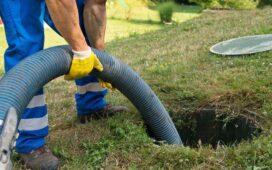Choosing the right dust collector for your business is crucial for maintaining a clean and safe work environment, especially in industrial settings. A suitable dust collector can improve air quality, protect machinery, and enhance workplace safety. However, businesses often make certain mistakes when selecting dust collection systems, which can result in inefficiencies, increased costs, and inadequate performance. Here are ten common mistakes to avoid when choosing a dust collector
Not Considering the Specific Dust Type
Different industries generate various types of dust particles, and each has its unique requirements. A dust collector designed for wood dust might not be suitable for handling metal or chemical particles. Assessing the specific type of dust in your environment is essential before choosing a dust collector. Opting for a generic model without considering your specific dust type could lead to poor performance and even safety hazards.
Underestimating Airflow Needs
One of the most critical factors in dust collection is ensuring adequate airflow. Businesses sometimes underestimate their airflow requirements, which results in underperforming dust collectors that fail to capture all contaminants effectively. Work with dust collector filter manufacturers or airflow specialists to determine the appropriate airflow specifications for your environment.
Choosing an Incorrect Filter Type
Filters play a vital role in dust collection, as they capture and contain airborne particles. Selecting the wrong filter can drastically reduce a dust collector’s efficiency. When working with dust collector filter manufacturers, consider factors like particle size, humidity, and temperature to ensure you choose the best filter type for your specific needs.
Overlooking Energy Efficiency
While it might be tempting to go for a less expensive dust collector, energy costs can add up significantly over time. Energy-efficient dust collectors may have a higher upfront cost, but they can save money in the long run by consuming less power. Energy-efficient systems often provide better overall performance, making them a wise investment.
Ignoring Maintenance Requirements
Different dust collectors have varying maintenance needs. Some require frequent filter replacements, while others have self-cleaning mechanisms. Overlooking the maintenance requirements could result in costly downtime and inefficient dust collection. Be sure to ask about the maintenance needs of any dust collector model you are considering.
Not Checking Compliance with Environmental Regulations
In industrial settings, dust collection must often adhere to environmental and safety regulations. Many industries are required to follow stringent emission standards, so choosing a dust collector that complies with these regulations is crucial. Selecting a system without considering compliance can lead to hefty fines and potential legal issues.
Selecting the Wrong Size Dust Collector
Choosing a dust collector that is too small or too large for your space can lead to inefficiencies. A system that’s too small may not capture all particles effectively, while one that’s too large could be a waste of energy and space. Conduct a thorough evaluation of your space to determine the optimal size before making a selection.
Disregarding Noise Levels
Dust collectors can be noisy, which could disrupt the work environment if not managed. Not all models are designed to minimize noise, so it’s essential to consider this aspect, especially if your workspace is indoors or in a confined area. Look for models that offer noise reduction features, especially in noise-sensitive settings.
Overlooking the Importance of Proper Installation
Proper installation of a dust collector is essential for ensuring optimal performance and longevity. Poor installation can lead to issues like leaks, reduced suction power, and increased wear and tear. Work with qualified professionals for the installation process, as they can ensure the system is correctly set up and calibrated.
Focusing Solely on Price
While price is an essential factor, focusing solely on finding the cheapest dust collector can lead to poor performance and higher long-term costs. Inexpensive models often compromise on quality, leading to higher maintenance expenses and more frequent replacements. Balance cost with quality and functionality to find a system that offers good value without compromising performance.
Tysum Dust Collector: A Detailed Review
The Tysum Dust Collector is designed for industrial environments and is widely appreciated for its efficiency and durability. Known for its advanced filtration system, this dust collector effectively captures fine particles, contributing to cleaner air quality and improved safety in industrial settings. Many users have found it particularly useful in woodworking, metalworking, and other sectors where dust control is critical.
One standout feature of the Tysum Dust Collector is its high-performance filters. Built in collaboration with dust collector filter manufacturers, these filters capture a wide range of particles, including small and fine dust, which many lower-end models struggle to contain. The Tysum system also offers an automated cleaning feature, reducing maintenance time and ensuring that the filters remain unclogged for longer periods.
Users across various industries praise it for its effectiveness and durability, which justify the initial cost in the long run. For companies seeking a robust dust collector industrial solution, the Tysum Dust Collector is certainly worth considering.
Conclusion
Choosing the right dust collector for your industrial needs requires careful consideration of various factors, from airflow and filter type to noise levels and energy efficiency. By avoiding the common mistakes outlined above, you can select a dust collection system that performs efficiently, complies with regulations, and meets your facility’s specific requirements. The Tysum Dust Collector is an excellent option for industries seeking a reliable, high-performance solution, combining advanced filtration and energy-saving features that offer long-term benefits.







